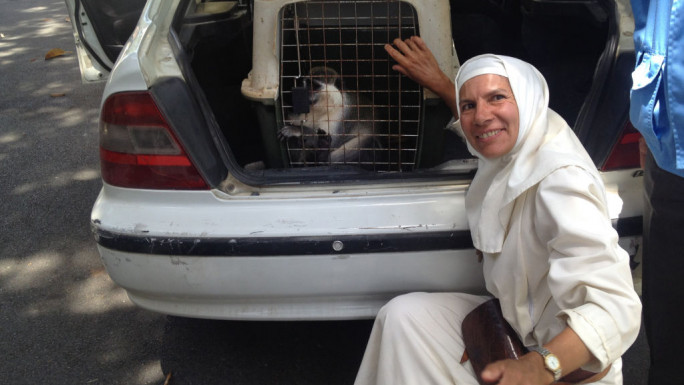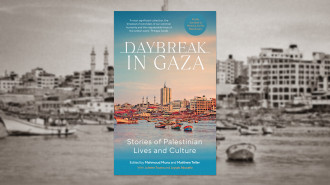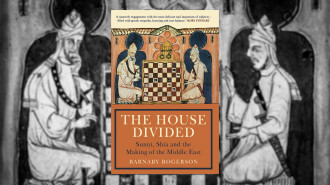
Saudi Coffee: A symbol of hospitality

A warm cup of coffee might be a staple in most households across the world but in Saudi Arabia, it is considered a cultural symbol.
Luxury publisher Assouline’s latest title, Saudi Coffee: The Culture of Hospitality, explores the region’s fascination with coffee, from seedling to refreshment, and its long history as a symbol of hospitality.
Written by Saudi Arabian chef, hospitality professional, and culinary educator, Maher Al Nammary, the book has over 100 original photographs and illustrations, following coffee from farm-to-table as well as their evolution into symbols of national pride and time-honoured traditions.
|
|
Maher was a natural choice to lead the project. His passion for the world of food and beverage stems from his belief that one can create deep and transcendent connections by sharing what we eat and drink.
“Assouline contacted me about the book project, and without hesitation, I jumped at the fantastic opportunity,” he explains.
“I had worked in supporting roles with a few book projects and publications, and of these projects had learned that a book is like a baby; it needs at least nine months to produce.”
However, the team at Assouline and the Kingdom of Saudi Arabia Ministry of Culture were keen to push the book out sooner.
"Coffee is by no means only found in Saudi Arabia, and its traditions are ingrained in many, if not all, in the region, and one of the most significant challenges for me was to create some distinction of what was distinct within the Kingdom"
“The main challenge was the time constraint. It was crucial for us to produce something to honour every aspect of coffee and all involved in local coffee production,” explains Maher.
“Fortunately, I worked with a great team. Everyone involved was united in what we wanted to achieve with the book’s creation. The skeleton was roughly drawn and organised.
"I then spent the bulk of the time adding to my knowledge base the much-needed details, and I bear witness to Aristotle’s words: ‘The more you know, the more you realise you don’t know’.”
Maher also quickly became aware that he needed to create something which distinguished the coffee around the world from that within the Kingdom: “Coffee is by no means only found in Saudi Arabia, and its traditions are ingrained in many, if not all, in the region, and one of the most significant challenges for me was to create some distinction of what was distinct within the Kingdom.”
The project also came with some great opportunities for Maher, which he muses about: “I got to connect with many coffee industry professionals and enthusiasts. The industry and its followers have a passion I can parallel to restauranteurs and food lovers. It has grown immensely in the past ten years.”
|
Maher also explains how the process of putting the book together gave him more profound insights about his own culture and childhood: “I realised how coffee was connected to my Saudi identity. I had grown up being taught how to make and properly pour a cup of qahwa for guests. I hadn’t fathomed how deeply these traditions were rooted and connected to the history of the Saudi Kingdom and the Arabian Peninsula.”
Speaking about his aspirations for the book, Maher Al Nammary is clear that it should educate and teach its readers about the coffee culture within Saudi Arabia. “The world could do with more understanding between its people and cultures; the truth is that we are more alike than we are different. We tend to humanise strangers the more we know of them, and I want this book to be a great start to understanding who we are and where I come from as a Saudi culture.
“I learned from my grandmother that sharing what we eat and drink is an expression of love, and whether coffee is or isn’t your drink of choice, it is still something we all know and have experienced, whether made by ourselves or others, it is a warm and loving expression.”
Saudi Coffee is available at Maison Assouline in Piccadilly.
Maison Assouline – the luxury publisher’s global flagship store in Piccadilly – has an onsite bar, Swans Bar, which has crafted up a cocktail menu (including non-alcohol drinks) inspired by its famed travel series. Here, visitors can expect a chic library ambience – filled with the publisher’s books – tempered by a romantic dose of vintage nostalgia, provided through carefully curated jazz music, a glimmering back bar and bartenders in classic white blazers.
Sami Rahman is a freelance lifestyle writer based in London.
Follow her on Twitter: @bysamirahman




 Follow the Middle East's top stories in English at The New Arab on Google News
Follow the Middle East's top stories in English at The New Arab on Google News


